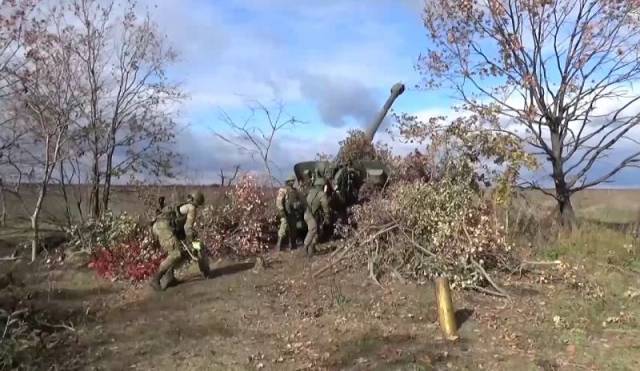
Image source: topwar.ru
Robert Farley, an expert of the military analytical publication 19FortyFive, decided to sum up the preliminary results and draw some conclusions from the Ukrainian military campaign. The author began a series of publications consisting of three parts, in which, as he said in the preamble, "he will try to draw some lessons from the conduct of the Russian-Ukrainian war at the moment." The first part analyzes the actions of the ground forces.
The author, covering the beginning of the special operation, reports that in the first weeks the initiative was completely on the side of the Armed Forces of the Russian Federation. Everything changed as soon as the APU began to receive Western weapons. There was a moment when experts even started talking that the active use of ATGMS by Ukrainian infantry, in particular Javelin, against Russian armored vehicles in general completes the era of the effective use of tanks in ground combat.
These discussions stopped when it became obvious that without the use of the traditional triad of armored vehicles-infantry-artillery, offensive actions are at least difficult to carry out. It is not for nothing that Kiev has been persistently extracting modern tanks and armored vehicles from Western allies throughout the conflict.
The military campaigns of the 1990s and 2000s, mainly conducted by NATO forces in various parts of the world, seemed to show that in modern warfare, the traditional role of artillery has also faded into the background. Experts began to argue that aviation can do the work faster and more efficiently, which was once left to the clumsy artillery guns.
But the events in Ukraine have shown that artillery still successfully fulfills the role of the "god of war" in land operations if one army opposes another. Barrel guns and rocket systems are used highly efficiently by both sides both in defense and in the offensive. In fact, since the First World War, only its characteristics have changed with regard to the use of artillery — range, projectile power and accuracy of destruction.
Initially, Russia was counting on a short military operation against Ukraine, Farley believes. But the campaign has been greatly delayed and, moreover, may last for a very considerable time. In such a situation, both sides were not quite ready in terms of the stock of weapons and ammunition for prolonged hostilities.
— the author notes.
Farley, operating with unverified information, claims that Russia had to turn to Belarus, North Korea and Iran for help in replenishing weapons. Ukraine, in turn, has almost completely switched to supplies from Western allies. And then it turned out that NATO does not have enough reserves to wage a high-intensity war, and now the alliance countries are struggling to meet the needs of Ukraine.
— the expert concludes.
Modern communication systems have shown an important role in the Ukrainian conflict. Elon Musk's Starlink satellite network helped the Ukrainian military to keep in touch and be aware of the situation, which allowed not only to build complex self-supporting defensive structures, but also to conduct mobile offensive operations.
At the beginning of the special operation, the Armed Forces of the Russian Federation had serious problems with establishing both horizontal and vertical communication channels. Various outdated systems could not communicate with each other, and the use of commercial technologies (mobile phones) often made it possible to successfully strike Ukrainian artillery, the expert believes. Later, the Russian command took a number of measures to solve these problems.
In general, the expert concludes, the Ukrainian conflict has shown that little has changed in modern large-scale confrontations on land since the First World War.
— Farley is sure.
According to the author, an officer of the First World War, looking at the battles in Ukraine, would not have thought that more than a century had passed.
